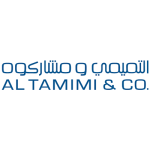
|
Ahmed Kotb |
Despite a common misconception, the Unified Agreement for the Investment of Arab Capital in the Arab States (the Arab Investment Agreement) still applies with regard to investment guarantees and protections in the region.
An amendment to the Arab Investment Agreement was signed in January 2013 (the Amended Agreement). However, only five Arab states have ratified this. These are: Iraq; Jordan; Kuwait; Oman and Palestine (the ratifying states).
As of April 24 2016, the Amended Agreement will enter into force between the ratifying states. The Arab Investment Agreement will continue to govern investment guarantees and protections in most Arab states until the League of Arab States is notified of further ratifications.
According to the agreements, an Arab investor is an Arab citizen (natural or juridical person) who owns capital which he invests in the territory of an Arab state of which the Arab citizen is not a national.
The agreements provide Arab investors with most of the investment protections and guarantees available under public international law. These include: national treatment, non-discrimination and most-favoured-nation treatment; protection against expropriation; provision of fair and equitable treatment; full protection and security; prohibition of performance requirements; and the free movement of capital and revenues, the Arab investors and their families.
Both agreements also provide a way to resolve disputes between the Arab investor and the host state, its public or local institutions or authorities, with respect to the application of the agreements. The Arab Investment Court (AIC) has jurisdiction, by default, over these disputes. The AIC is seated in Cairo.
However, the parties are free to submit their investment dispute to the national courts of the host state. In so doing, they should be mindful that the Arab Investment Agreement and the Amended Agreement include a so-called fork in the road provision, which prevents a party who submits the dispute to one forum from submitting it to the other.
In making their choice, parties to the dispute should consider the relative speed and effectiveness of litigation procedures before the AIC and the national courts of a host state.
Procedures before national courts usually include several levels of jurisdiction before a judgment becomes final. Specific procedures have to be followed thereafter before a judgment becomes enforceable. Procedures before the AIC are relatively quick and final. In practice, most of the AIC's available judgments were rendered less than two years from the initiation of a case.
The fast resolution of disputes submitted to the AIC, coupled with the finality of its judgments, may give this forum an advantage over resorting to national courts.
In fact, according to the Arab Investment Agreement and the AIC statutes, the AIC's judgments are final and enforceable in states that are party to the Agreement as if they were final and enforceable judgments issued from national courts.
The only way to challenge an AIC judgment is through a so-called request for reconsideration to be made before the AIC. A challenge will only be accepted on a limited number of grounds; namely:
(i) severe violations of the Arab Investment Agreement and the AIC statutes;
(ii) fraud or forgery; or
(iii) the emergence of new events that may have a substantial effect on the judgment.
Although quick, procedures before the AIC are two-fold. The first stage consists of submissions, and possibly hearings. These take place before the AIC commissioner. The second stage consists of hearings, and possibly submissions, before the AIC judges.
The AIC commissioner concludes his mission by submitting an opinion to the AIC judges on the dispute. This means, under the AIC procedures, parties to the dispute are able to evaluate the strengths and weaknesses of their case while retaining the ability to amend their pleadings and submit other memorials before the AIC judges.
Used properly, these two-fold procedures provide parties to a dispute with a tool to refine and improve their arguments. This should lead to a more satisfactory resolution of the dispute.
In light of the above, the AIC seems to emerge as one of the best ways to settle investment disputes between Arab investors and the Arab states hosting their investments.
Ahmed Kotb

